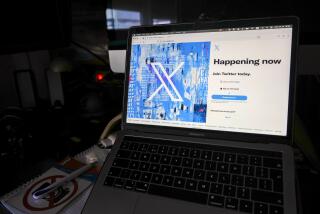Being ‘Wikipedian’ trumps party affiliation, study finds

It’s well-known -- and scientifically supported -- that the world of politics online is highly polarized. Those of us with liberal views tend to read and link to liberal blogs; if we’re conservative, we follow and communicate with fellow conservatives on Twitter.
But a new analysis of activity on the user-generated Web encyclopedia Wikipedia suggests that there are cases when political people can set aside their strongly held party affiliations to collaborate and communicate for a common cause -- despite deep differences.
Writing in the journal PLOS One on Wednesday, researchers from the Barcelona Media-Innovation Centre in Spain and USC in Los Angeles examined how users who contributed to Wikipedia who were public about their politics interacted with one another as they worked on building the site. Overall, they discovered, Wikipedia collaborators seemed to be as likely to engage in conversations with people from a different party as they were to communicate with people from their own.
“It may be that in the course of conducting activities that are central to the Wikipedia community (e.g., editing articles), the identity of being a Wikipedian is activated” and political identity becomes less important, they wrote.
Wikipedia is the sixth-most trafficked site in the world, the researchers noted in their study, attracting 482 million unique visitors around the world in January 2012. It’s one of the leading information sources on the Internet, appearing among the top three search results 90% of the time. More than half of U.S. Web users use the site. The authors noted that articles on Wikipedia are “extremely accurate,” and that neutrality -- an attempt to “describe disputes, but not engage in them” -- is a fundamental principle of the site.
The team examined how Wikipedia editors who advertised their politics (on “userboxes” on their personal user pages) behaved online. They looked at users’ editing activity, at comments they posted on article-related or user-related pages, and at their communications patterns. The work revealed some interesting characteristics of the political Wikipedians. Partisan users were generally more active editors than non-partisan users. A few particularly hardworking contributors (at around 100,000 edits) were Democrats. The 10 articles with the most Republican editors among their contributors included entries about U.S. political figures like George W. Bush and Barack Obama, the Virginia Tech massacre and Adolf Hitler. Democratic editors also chipped in on U.S. politics, and Britney Spears.
The study also found that while discussing articles, users did not differentiate between people from one party or another. Levels of conflict were high in political discussion threads both within and across parties.
“The results of our analysis show that despite increasing political division in the U.S., there are still areas in which political dialogue is possible and happens,” the team concluded.
Follow me on Twitter: @LATerynbrown







